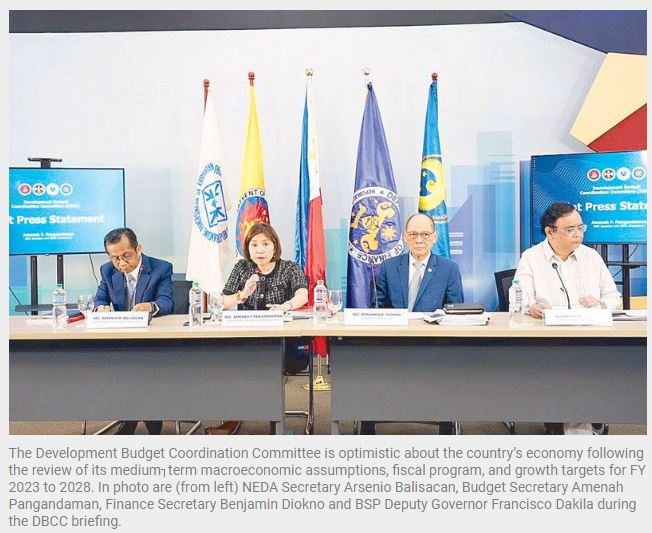Philippines: DBCC raises inflation forecast for 2023
Due to still elevated food, energy prices
MANILA, Philippines — Inflation is expected to remain high this year and could even hit as much as seven percent as prices of food and energy are still elevated.
During the Development Budget Coordination Committee (DBCC) briefing yesterday, the economic team jacked up its inflation assumption for this year to a range of five to seven percent from the previous target of 2.5 to 4.5 percent .
This is significantly higher than the 5.8 percent inflation recorded in 2022.
Budget Secretary and DBCC chair Amenah Pangandaman said the adjustment was made due to the persistent high prices of food, energy, and transport costs.
Even as inflation is expected to remain elevated this year, the economic team is still optimistic about the country’s gross domestic product (GDP) growth for this year.
The DBCC retained its six to seven percent target for 2023 in consideration of the risks posed by geopolitical and trade tensions, possible global economic slowdown, as well as weather disturbances in the country.
The latest target, however, was slower than the 7.6-percent GDP expansion recorded in 2022.
Still, NEDA Secretary Arsenio Balisacan said the optimism stems from consumption and investment, as well as services.
“We haven’t exhausted the possibilities there. Many of the sectors of the economy haven’t recovered yet. There are still going to be a lot of rooms (for growth),” Balisacan said.
“We think there’s scope for continuity to grow despite external headwinds. The economy is quite robust at this point,” he said.
Nonetheless, GDP is seen picking up by 2024 to 2028 and register a 6.5 to eight percent growth, which was the original target of the DBCC.
“The strategies of the government will focus on modernizing agriculture, expanding agri-business, encouraging private sector participation in infrastructure development, promoting digital transformation, and enhancing the competitiveness of local industries, among others,” Pangandaman said.
Further, the assumption for the price of Dubai crude oil was also adjusted downward to $70 to $90 per barrel considering the global demand slowdown.
By 2024, it is projected to further decline to $60 to $80 per barrel, as oil supply is expected to catch up and stabilize over the medium-term.
As of the first quarter, inflation already averaged 8.3 percent, way above the target of the economic team.
Bangko Sentral ng Pilipinas Deputy Governor Francisco Dakila said inflation would continue to decelerate barring any further shocks coming from the supply side.
As the threats of El Nino looms that could potentially impact food prices, Socioeconomic Planning Secretary Arsenio Balisacan said the government has already put in place measures to monitor price movements.
“This is to anticipate the effects of things like El Niño so we can plan the appropriate response,” Balisacan said.
“If we need to import more to cover the potential shortfall in production then we have to make that decision early on and not wait until the effects are already felt,” he said.
As of now, however, the government has yet to identify the list of commodities that could need extra supply should there be gaps in the months ahead.
Effects of El Nino are expected to be felt toward the latter part of the year and spillover to 2024.
Meanwhile, goods exports and imports growth projections for this year remain at three and four percent, respectively, following the trend in near-term global demand outlook and trade prospects.
Source: https://www.philstar.com/business/2023/04/25/2261348/dbcc-raises-inflation-forecast-2023


 English
English




